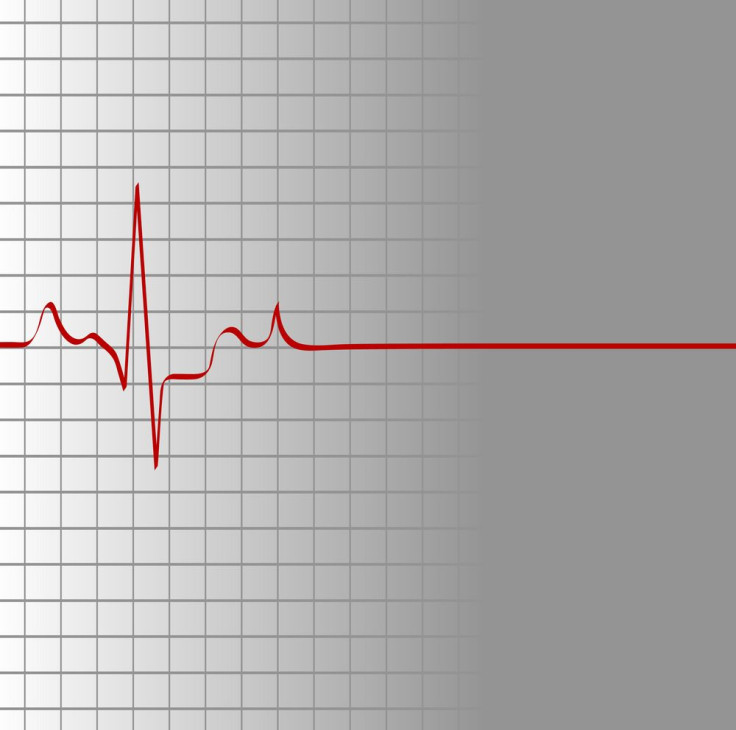Early Death Risk Factors: 5 Seemingly Innocent Behaviors That Are Increasing Your Risk Of Premature Death

Death is an inevitable part of life, but dying before our time is entirely preventable. According to the Organization for Economic Co-operation and Development (OECD), the average life expectancy for Americans was 78.7 years in 2012. Dying at any point before that age could be considered a premature death. There are several key risk factors that can contribute to an early death by way of a chronic illness. For example, tobacco use, alcohol use, salt intake, and high blood pressure are all considered risk factors that can significantly increase our risk of a premature death. While the hazardous effects of tobacco use and high blood pressure are well understood, there are other seemingly innocent behaviors that can also lead to an early grave.
1. Watching Too Much TV
After a long day of work, avoiding your couch and the TV is easier said than done. However, giving in to sedentary behavior could have life-threatening results. A study conducted at the Department of Public Health at the University of Navarra examined the lifestyle choices of 13,284 college graduates for an average of 8.2 years. Researchers set out to determine a link between the risk of death and three examples of a sedentary behavior, including prolonged TV exposure, time spent in the car, and time spent on the Internet. By the end of the study, a total of 97 participants had died, including 19 from adverse cardiovascular events, 46 from cancer, and 32 from other causes. Compared to people who watched an hour of TV or less, those who watched three or more hours were twice as likely to die prematurely. On the other hand, time spent on the Internet or driving had no effect on the risk of premature death.
2. Being Lonely
Loneliness has its obvious disadvantages when it comes to psychological health, but could it also be detrimental to our physical health? Research presented at the American Association for the Advancement of Science’s annual meeting in Chicago found that a variety of aspects related to extreme loneliness can increase a person’ risk of an early death. Older people who feel lonely are less likely to recover from stress or adopt a positive outlook in life. Being lonely can also lead to high blood pressure, increase cortisol level – the depression hormone — and disrupt sleep cycles. Overall, the research team found that older people who feel lonely increase their risk of premature death by up to 14 percent.
3. Early Retirement
Working too hard can increase a workaholic’s stress and anxiety levels, but not working at all can increase a person’s risk of depression, heart disease, and premature death. Early retirement may seem like a good opportunity to sit back and enjoy the remaining years of your life, however, corresponding research suggests that it could limit the amount of years you have left. Researchers from the University of Zurich in Australia investigated the relationship between mortality risk and early retirement among blue collar workers. Men who decided on retirement at an early age increased their risk of prematurely dying before the age of 67. In fact, for every additional year of early retirement, a person increases their risk of a premature death by 13.4 percent.
4. Exposure To Air Pollution
For certain parts of the world, both indoor and outdoor air pollution have become so prevalent that people tend to ignore the common health concerns that can result from heavy exposure. Air pollution is often regarded as the world’s largest environmental health risk. Prolonged exposure has been linked to an increased risk of stroke, ischemic heart disease, acute respiratory infections, and chronic obstructive pulmonary diseases (COPD), and certain types of cancer. According to the World Health Organization (WHO), around seven million global deaths in 2012, one out of eight deaths, were caused by either indoor or outdoor air pollution exposure.
“The risks from air pollution are now far greater than previously thought or understood, particularly for heart disease and strokes,” Dr. Maria Neira, director of the WHO’s Department for Public Health, Environmental and Social Determinants of Health, said in a statement. “Few risks have a greater impact on global health today than air pollution; the evidence signals the need for concerted action to clean up the air we all breathe.”
5. Not Brushing Your Teeth
If you’re under the impression that oral hygiene means little when it comes to your chances of dying at an early age, think again. A team of Swedish researchers recently found that excessive buildup of dental plaque can be linked to premature death caused by cancer. A total of 1,390 people participated in the study that lasted from 1985 to 2009. Researchers examined lifestyle factors that increased each participant’s risk of cancer and assessed their oral hygiene at the beginning of the study. At the end of the 24 years of research, 58 participants had died including 35 due to cancer. Compared to patients who survived the study’s duration, patients who died had higher dental plaque index, meaning the gum area of their teeth was covered in plaque. The film of bacteria resulting in dental plaque has been considered a possible source of infection and can play a role in carcinogenesis over time.



























